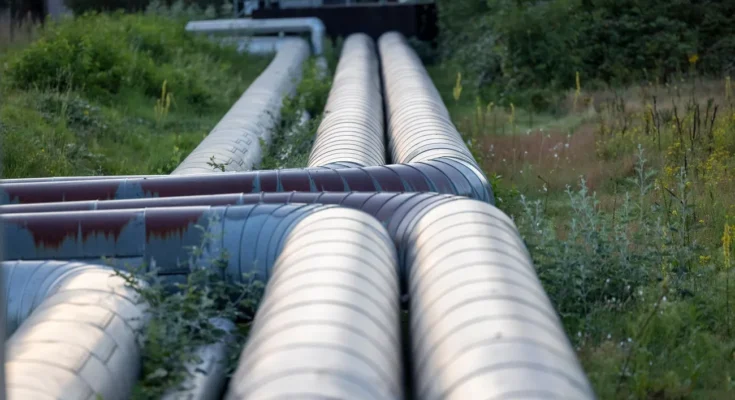As one of the many cities in hall currently working on a heating plan – according to experts, the city of Saale has a decisive advantage over other cities in Germany. “Everyone involved, including large consumers, must be involved. The fact that the network was created so early, as in Halle, is truly special,” said the head of the Municipal Heat Transition Competence Center (KWW), Robert Brückmann, in an interview with the German Press Agency. The center, based in Halle, supports cities and communities across the country in drawing up heating plans.
It is planned that all large cities in Germany will draw up heating plans by the end of June 2026. Small cities and communities with a population of less than 100,000 people have until the end of June 2028.
As the current KWW survey shows, more and more German cities are implementing legally required heating plans. Compared to the previous year, the number of cities implementing this program increased by 20 percent. At the same time, only a few cities are still making preparations. Overall, about half of Germany’s cities – especially large cities – are in the planning or implementation stage, according to the survey.
Communication as the key to success
In Halle, the heating plan was recently presented to residents – with the opportunity to ask questions or raise objections. “But there may not be any, at least for now. But we assume that questions, tips and suggestions will arise during its implementation,” said Daniel Zwick from the city of Halle.
The key to success in heat planning is communication, emphasizes Brückmann. And also: “Users must always be considered throughout the entire planning process.” It is important to create perspective and acceptance.
What should happen in Halle?
In the survey, the cities surveyed also stated that they experienced difficulties in planning due to a lack of staff and the additional effort required to build knowledge, explained KWW. For the residents of Halle, there is currently digital assistance intended to explain to the community what to expect in the future.
Urban thermal energy planning for existing buildings is important. This should make it clear to homeowners whether they should connect to a district heating network, for example, or whether they should look for their own decentralized solution for a new heating system – a heat pump, for example.
In the city on the Saale, the heat supply currently depends on fossil fuels. “Half of the households are supplied with district heating, the others are supplied with natural gas,” said Katja Nowak of Halle city utilities. The plan is to expand the district heating network. “If district heating does not make sense in the future, the heat supply will be electricity-based – i.e. using heat pumps.”
Planning based on needs
To ensure that this planning can be implemented successfully, the Halle Energy Initiative (Saale) has long existed in Halle – a group consisting of representatives of the city, municipal utilities and major energy customers, including organized housing industry, research, hospitals and companies. “This has one major advantage in heat planning: we get the data and can plan accordingly,” Nowak said. Additionally, everyone who is significantly involved in implementation and decision-making gathers at the negotiating table.
Basically, heating planning occurs in roughly the same process phases in all cities, explains Brückmann. “First, there is an inventory survey and potential analysis, involving specialist departments, experts and large consumers, and then the public can take part in the planning.”
Brückmann: Halle is a “lighthouse”
The competence center in Halle, Anhalt, is part of the German Energy Agency (dena) and is intended to support the municipality in drawing up heating plans.
Halle is a “lighthouse” when it comes to heat planning, KWW managers say. This shows, among other things, how important it is to involve everyone involved in planning – although the Heat Planning Act does not necessarily require this. “But we encourage talking to as many people as possible as early as possible. However, there are cases across the country where individual actors only get involved very late. And then you realize: The planning didn’t add up.”
© dpa-infocom, dpa:251118-930-306234/1



